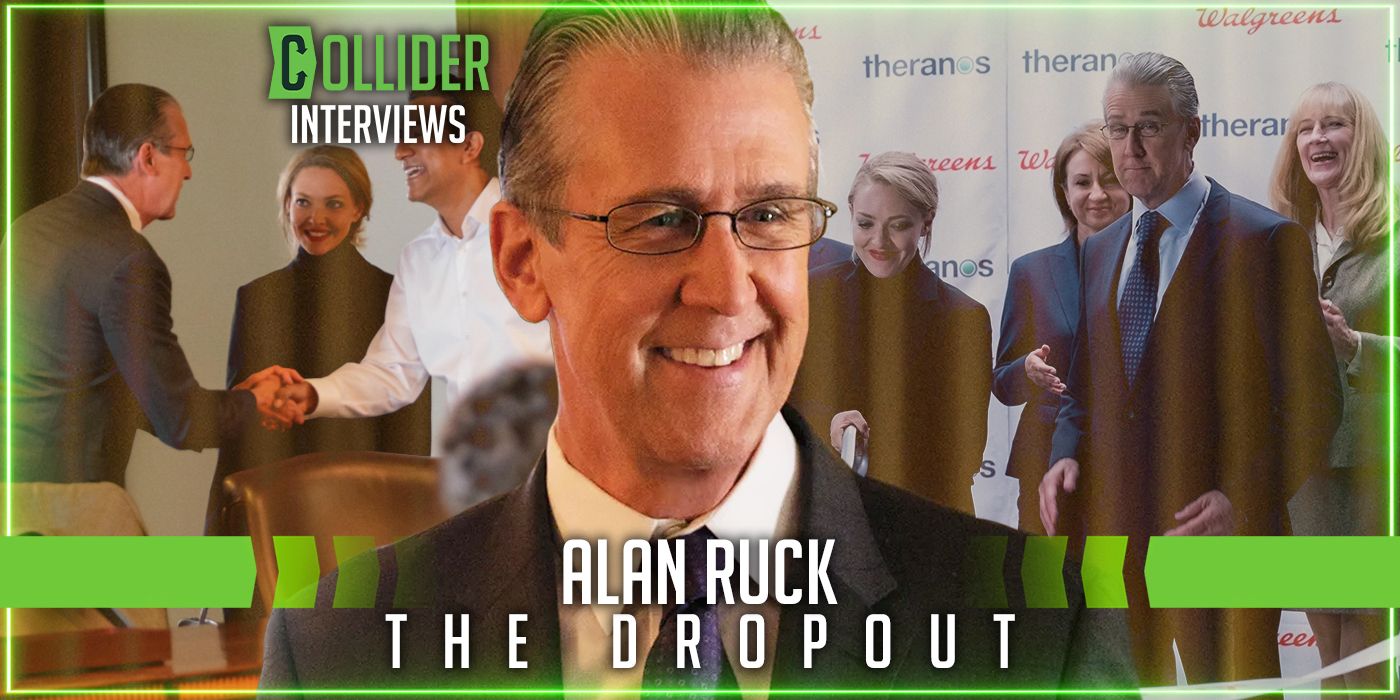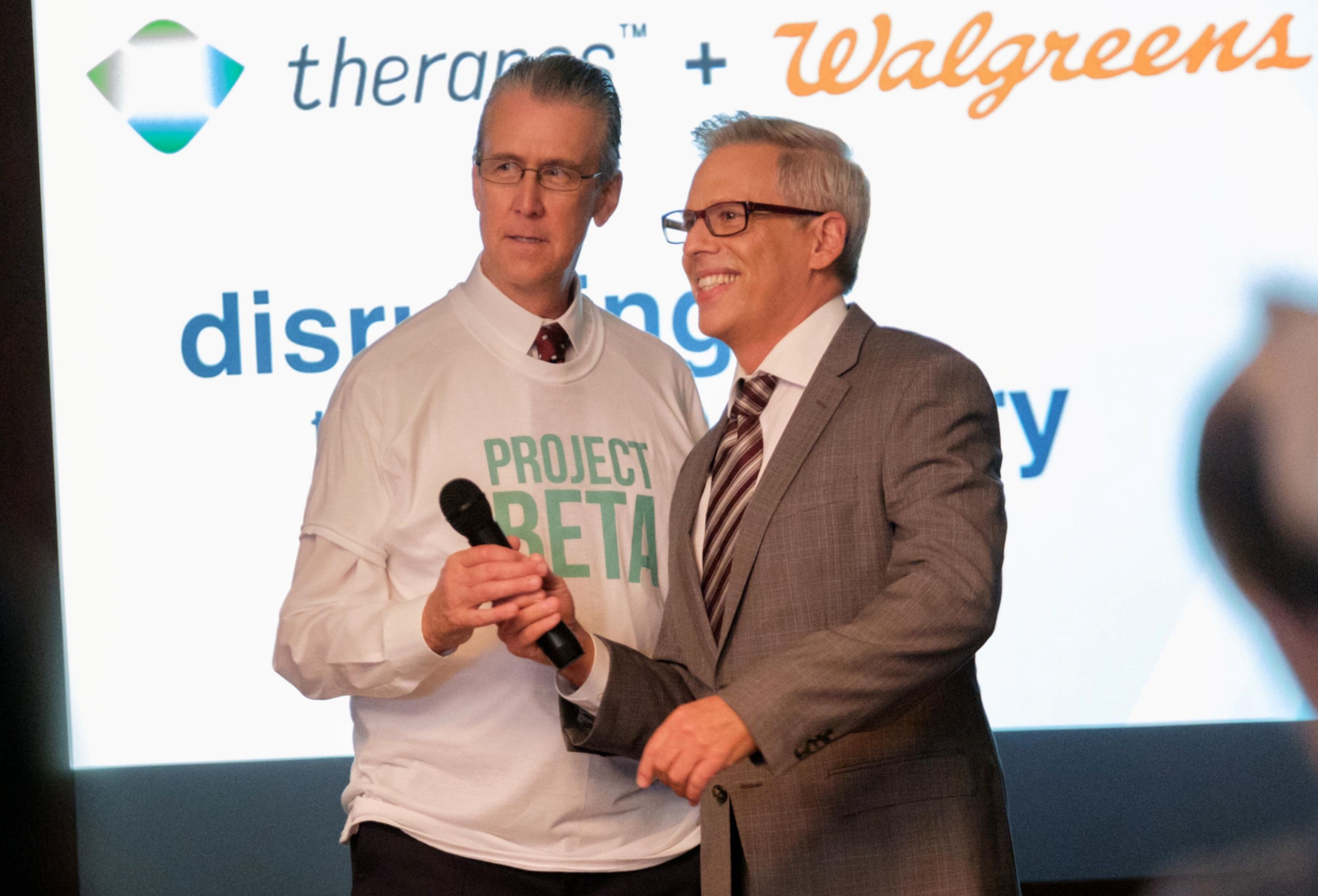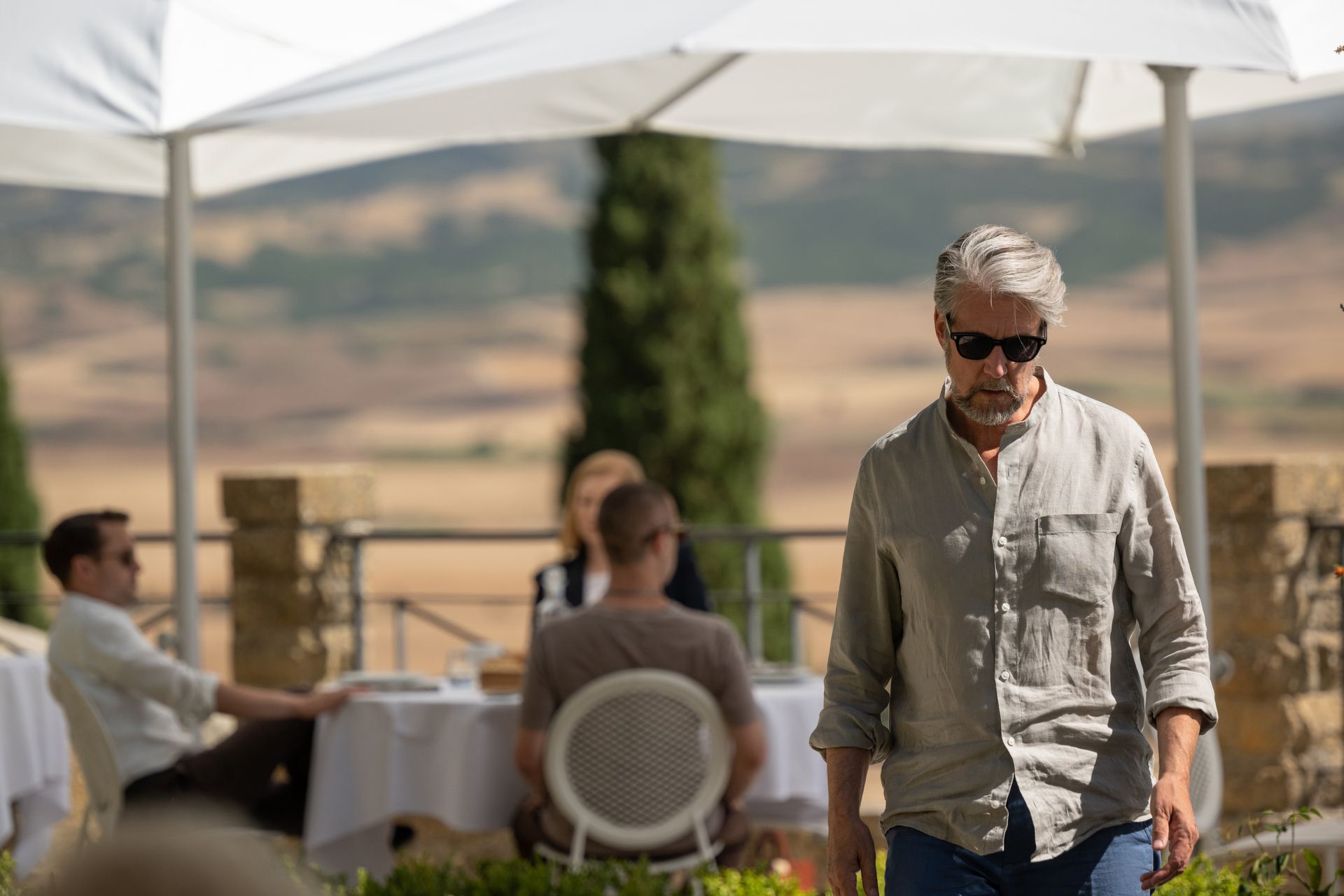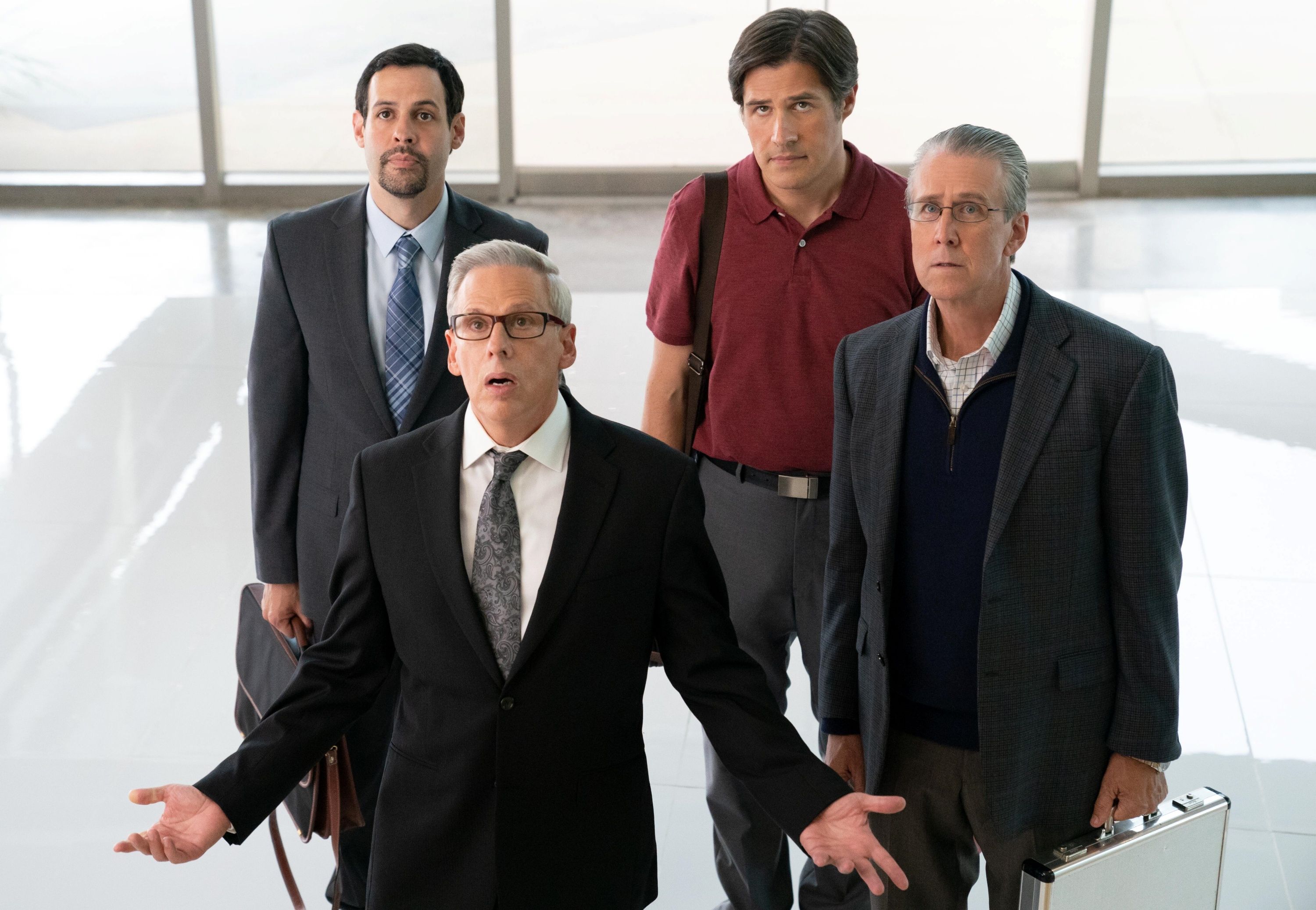Executive produced by showrunner Elizabeth Meriwether, the Hulu original series The Dropout tells the story of Elizabeth Holmes (Amanda Seyfried), Theranos, and the deception that pulled the curtain back on the world’s youngest self-made female billionaire to reveal the fraud of it all. It’s a tale of ambition and big dreams, but all the optimism in the world couldn’t help the tech startup founder out of the hole she dug for herself when her attempt to revolutionize the healthcare industry turned out to be nothing more than smoke and mirrors.
During this 1-on-1 interview with Collider, Alan Ruck (who plays Dr. Jay Rosan, the VP of health innovation for Walgreens and a man that worked with Holmes to secure a deal between Theranos and the drugstore chain) talked about how he really knew nothing about this story before the project came his way, what most surprised him about everything that happened, the fascinating experience of telling a story that still hasn’t reached its conclusion yet, and what it was like to see Seyfried transform into Holmes. He also talked about the intense third season of Succession, how Connor Roy finally grew some teeth, and that he has no idea what’s coming next.
Collider: This is a fascinating story. I was somewhat familiar with it, just not aware of all the specifics. When this came your way, how familiar were you with Elizabeth Holmes, Theranos, and the fraud of it all? Was this something you had to learn more about?
ALAN RUCK: I really knew nothing about it. I’d seen the billboard for the HBO documentary, but I didn’t think too much about it. And then, I was offered this part and I read [John] Carreyrou’s book, the journalist from Wall Street Journal. I obviously read the scripts that they had, up to that point. That’s how I found out about it. I never listened to the podcast. I did watch the documentary, but I haven’t listened to the podcast at all.
I paid more attention to it than I normally would have because it was a woman and it was interesting that she was this female billionaire, but I definitely wasn’t aware of all the details. It’s hard to understand how all of this got quite as far as it did, before it finally blew up in everyone’s faces. There were all these red flags that seemed to have their own red flags on top of them.
RUCK: Yeah, absolutely.
What most surprised you about this story and about anything you learned from doing this?
RUCK: Just exactly as you said, how did it get so far with so many red flags popping up, all over the place? That’s one of the reasons it’s such a fascinating story, there’s something about this woman. When it started out, she was really a girl. She was a 19-year-old dropout who just captivated so many people, and so many powerful people. She really charmed them and persuaded them that she was onto something that was gonna revolutionize the medical industry, and they all just saw big, fat dollar signs. After a while, people would lie to themselves and say, “Well, these things take time. When you’re developing a new technology like this, it’s not gonna happen overnight. It may take a few years.” And then, they’d have to put some more money down, to keep themselves in. It just became a monster that they kept needing to feed.
It seems like a really rare experience to get to work on something that is still playing out in real-time while you’re doing it. This story still hasn’t quite had its ending yet. What was that like? How unique of an experience was that?
RUCK: This was the second part of this past summer, that I was involved with this, so we were keeping up with the information that we would get about what was going on with her trial and the situation. At some point, the writers pulled back a little bit and were like, “Wait a minute, we need to see how things are gonna play out here before we write the last two scripts.” It’s fascinating. It’s still not done because she’s not gonna be sentenced until September. And then, there’s the whole Sunny Balwani trial. There’s still more story to be told.
This guy seems like he had to be a lot more fun to play than Connor Roy. You seemed lighter in this, in a way that no one seems to be on Succession. Was that the case? Was this a character that you could have some fun with?
RUCK: I always have fun. I make it a point to have fun. But Connor has been a verbal punching bag for three seasons now. It wasn’t until really the very end of this last season that he stood up and told his siblings off. But who knows what will happen? This guy wasn’t having to suffer abuse from anybody. He was self-abusive. Just like the rest of them, he was smart enough and certainly old enough to know better, but just disregarded the intelligence and said, “No, this is gonna work. This is gonna work, by God.” He just kept pushing through until it became terribly apparent that it wouldn’t.
When you do something like Succession, that was so tense and intense in this last season, do you feel the weight of that? Is that a show that feels heavier to do? You said you always have fun, but does it still feel a little bit weightier when you do something that just is that intense?
RUCK: No, because, at least at this point, it’s not life and death. Connor is never gonna have to worry about money. He’s never worked a day in his life. You don’t have to worry about him. There’s no threat to his lifestyle. He lives in his own little world that he’s created since he was a boy, really. With a lot of what goes on in the family dynamics of Succession, Connor has learned to tune them out. He’s learned to tune out the put-downs and the snide remarks because they’ve been happening for decades. He knows that when he gets together with the family, people are gonna say some nasty things and, for the most part, he’s learned how to tune them out. Every now and then, it gets under his skin and he snaps back, much to their surprise. At least in this last season, Connor grew some teeth.
It was quite the season finale. I love the show, but I was not expecting things to end up quite where they did.
RUCK: Yeah, and I have no idea. The only one who has any clue is Jesse Armstrong. I think they just opened the writers’ room not long ago, and he’s the only one that really knows where any of this is going. Otherwise, it’s just anybody’s guess.
Which seems frightening and terrifying, in many ways.
RUCK: Much like life.
Was Jay Rosan a character that you were able to explore and find on your own, even though he does exist? Did you have room to figure out how you wanted to play him without having to adopt mannerisms or worry about how he sounded?
RUCK: I looked him up online and I’ve seen pictures of him, and we look nothing alike, so obviously that wasn’t a consideration for the producers, at all. Since this was not his shining moment or his finest hour, I didn’t feel that I should try to make contact with him and say, “Hey, you wanna talk about all those bad decisions you made?” So, I just decided to be me, who is roughly the same age Jay Rosan was, at the time, and tried to feel, what if I was close to retirement age and just wanted one last big score or one last hurrah, before I rode off into the sunset. And then, this charming young woman comes along with this revolutionary idea, and I just want it to be true. I just let myself, as Rosan, be charmed by Elizabeth. Amanda [Seyfried] is a very charming young woman, so those scenes were easy.
Even though they don’t look exactly alike and probably don’t sound exactly alike, it’s uncanny how well Amanda Seyfried really embodies Elizabeth Holmes.
RUCK: Yes, she really captured an essence.
What was it like to see that transformation and to work with her?
RUCK: I’ve been doing this a long time, but good actors are always surprising, especially the ones that, between takes, are laughing and telling jokes and doing whatever it is they’re doing. And then, when somebody says, “Okay, we’re ready,” they snap into it, and it’s as if you’re looking at a different human being. She has that ability, which I think is actually very healthy, especially if you have to play things that are stressful or emotionally charged, in any way. I think it’s smart to step back from it between takes, or at least at the end of the day, and get away from it because you don’t wanna take it home.
Jay Rosan had off-ramps that he could have taken to get off of this crazy ride, at various points. What do you think it was that kept reeling him back in?
RUCK: The dollar bill signs in his mind make him completely miss the off-ramp signs. I think he was just so motivated, as they all were. With all of these people, it was all money. George Shultz, close to the very end, was telling his grandson that he didn’t know what he was talking about. I just think that they had made up their mind that this young woman was brilliant and she was gonna revolutionize medicine and they were all gonna be rich, and that’s all there was to it. I think they just lied to themselves because they wanted it to be true.
From The Exorcist to Succession to The Dropout, it seems like you enjoy being a part of stories that are as different as you can possibly get them. Is that part of what you seek out? Is that something that’s important to you?
RUCK: I pretty much just take things as they come. I did have it in the back of my mind that I wanted to do at least one film in every kind of genre. I did a Western many years ago, so if I don’t do another Western, I’m probably okay there. I did do a horror movie with Vince Vaughn, but I’d like to do another horror movie. I have ideas like that, but it’s pretty much whatever comes along.
When you read a script, do you know pretty quickly that it’s something you feel like you can identify with or that you could bring something to a character, or are you someone who still likes to finish the script?
RUCK: It depends where your character shows up in the story. I think you get a feeling pretty quick, whether or not you’re right for the part, and then sometimes it takes convincing. I can’t actually remember anything specific right now, but there have been things along the way where I’m like, “I don’t really see myself as this person,” but my manager or my wife will say, “But they do. They wanna see you, so why don’t you just go do it?” So, there have been a few times, along the way, where I’ve been wrong. Mostly, I think I get a feeling pretty quickly, whether or not I’d believe me as that person.
The Dropout is available to stream at Hulu.





